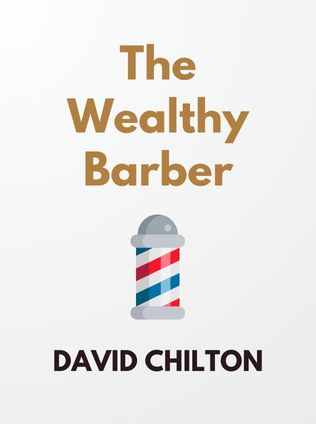
The Wealthy Barber
The Common Sense Guide to Successful Financial Planning
By David Chilton
Published 01/2002
About the Author
David Chilton, a Canadian author, investor, and television personality, is best known for his seminal work The Wealthy Barber. Holding a degree in economics from Wilfrid Laurier University, Chilton leveraged his financial acumen to craft a narrative that combines basic financial principles with engaging storytelling. His approachable style and emphasis on steady, practical investments have made his work a cornerstone in personal finance literature.
Chilton later expanded his insights with The Wealthy Barber Returns, which delves into contemporary financial issues without the original's fictional narrative. Despite this, The Wealthy Barber remains his most influential work, helping countless individuals understand and manage their personal finances effectively.
Main Idea
The Wealthy Barber revolves around a simple yet profound concept: financial success is achieved through steady, disciplined habits rather than quick wins or complex strategies. Chilton conveys this through a fictional narrative where a barber named Roy imparts financial wisdom to three characters—Dave, Tom, and Cathy—each representing common financial situations.
Roy's teachings emphasize the importance of saving, investing in mutual funds, understanding compound interest, and planning for retirement. Chilton's overarching message is clear: anyone, regardless of their financial background, can achieve wealth by consistently applying basic financial principles over time.
Table of Contents
- Introduction: Meet the Barber
- Fundamentals of Financial Planning
- Investing for Long-Term Growth
- Contributing to Retirement Plans
- Saving for Major Expenses
- Protecting Yourself and Your Loved Ones
- Living Within Your Means
- Final Thoughts: The Path to Financial Independence
Introduction: Meet the Barber
The narrative begins with Dave, Tom, and Cathy, three friends from different walks of life, seeking financial advice. They turn to Roy, a local barber who, despite his unassuming profession, has accumulated substantial wealth through disciplined financial practices. Roy embodies the idea that wealth isn't about high income but about wise money management.
“The key to wealth is not how much you make, but how much you keep and how wisely you invest it.” — David Chilton
Roy’s humble profession contrasts sharply with the typical image of wealth, underscoring Chilton’s message that financial success is accessible to everyone. Roy’s barbershop serves as the backdrop for a series of conversations that gradually reveal the core principles of personal finance. Through his straightforward and relatable advice, Roy dispels common myths and misconceptions about money, making complex financial concepts understandable for his friends—and for readers.
Fundamentals of Financial Planning
Roy's first lesson centers on the importance of time in financial planning. He stresses that starting early and being patient are crucial. These principles allow individuals to take full advantage of compound interest, which Albert Einstein allegedly called "the most powerful force in the universe."
“Compound interest is the eighth wonder of the world. He who understands it, earns it; he who doesn't, pays it.” — David Chilton
Roy advises his friends to "pay themselves first" by saving at least 10% of their income before spending on anything else. This simple rule, according to Roy, is the cornerstone of building wealth. By consistently setting aside a portion of their earnings, individuals can create a solid financial foundation that grows over time, driven by the power of compound interest.
One of the key takeaways from this lesson is that financial success isn’t about earning a high income. Instead, it’s about how much of your income you save and how wisely you invest it. Roy emphasizes that even those with modest incomes can achieve financial independence by adhering to this principle.
Investing for Long-Term Growth
Investing is the next major topic that Roy covers. He introduces the concept of investing 10% of one’s income in mutual funds or index funds, which offer diversification and professional management. Roy explains that these funds are ideal for most people because they don’t require extensive financial knowledge or time to manage.
Roy delves into the mechanics of compound interest, illustrating how it works with a simple example:
Sign up for FREE and get access to 1,400+ books summaries.
You May Also Like
The Subtle Art of Not Giving a F*ck
A Counterintuitive Approach to Living a Good Life
By Mark MansonRich Dad Poor Dad
What the Rich Teach Their Kids About Money - That the Poor and Middle Class Do Not!
By Robert T. KiyosakiHow To Win Friends and Influence People
The All-Time Classic Manual Of People Skills
By Dale CarnegieFreakonomics
A Rogue Economist Explores the Hidden Side of Everything
By Steven D. Levitt and Stephen J. Dubner



















